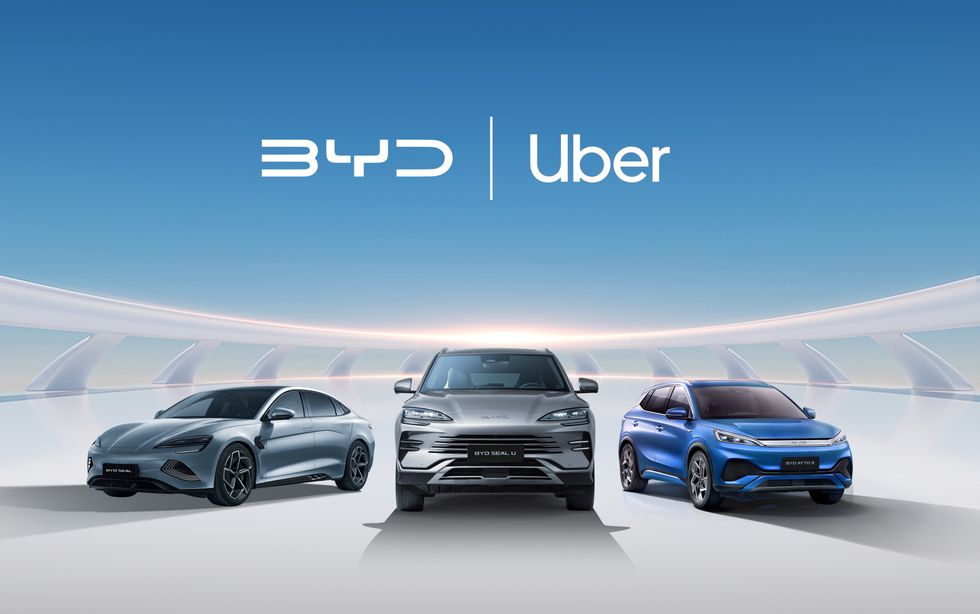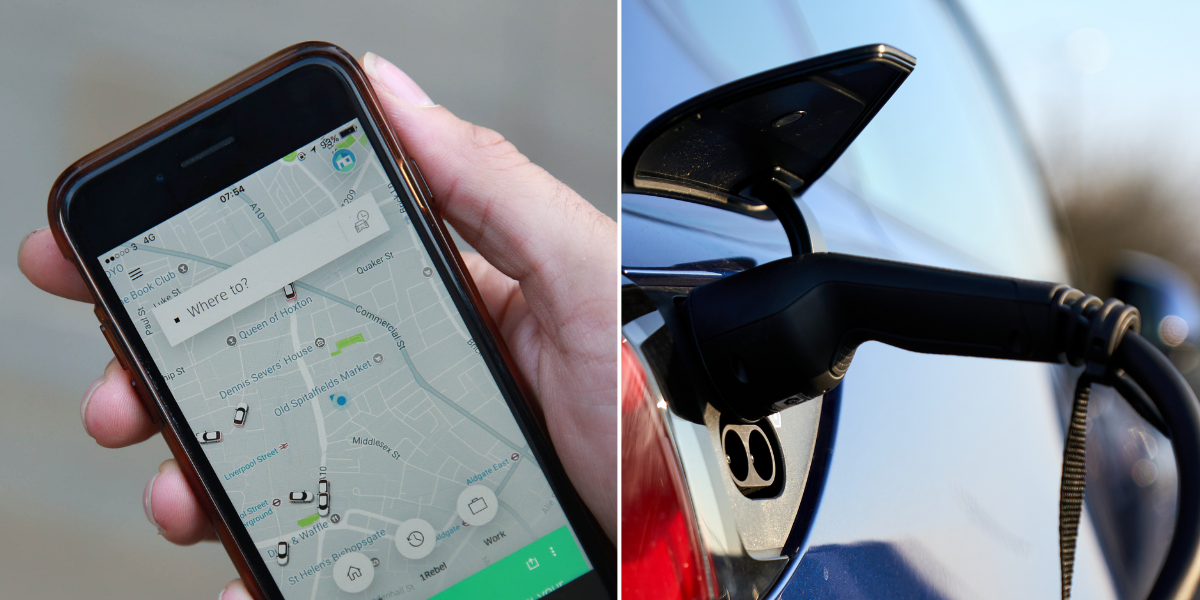Uber has urged the new Labour Government to maintain its pledge to end the sale of new petrol and diesel cars by 2030.
The Uber CEO has advocated for more Government support in the transition to electric vehicles as well as the removal of existing barriers stopping drivers from making the switch.
The ride-hailing giant also criticised the use of tariffs on Chinese EVs by the United States and European Union, arguing that making these vehicles more expensive for consumers was “negative” for the planet.
The criticism follows a partnership between Uber and Chinese carmaker BYD to accelerate the uptake of EVs which are “good for the environment” and part of the solution to the climate crisis.
Do you have a story you’d like to share? Get in touch by emailingmotoring@gbnews.uk
The UK Government plans to have 80 per cent of new car sales be electric by 2030, rising to 100 per cent by 2035
GB NEWS
Uber stated that it aims to have allcar journeys and deliveries carried out in zero emissions vehicles by 2040 and has already started rolling out new options to encourage customers to choose electric rides instead of petrol and diesel ones.
Uber will also introduce features to make it easier for customers to choose electric vehicles which would help support the UK transition to its own goals.
Passengers will soon be able to set a permanent preference for electric rides, ensuring they always get an EV when available.
This feature builds on the existing option to select an electric car for individual journeys although prices do vary depending on the region.
However, as most Ubers are still petrol, diesel or hybrid vehicles, customers opting for electric rides may face slightly longer wait times.
In London, where nearly a third of Uber drivers have invested in EVs, the delay may be minimal. But in other UK cities and across Europe, where electric vehicle uptake is lower, the wait could be more noticeable.
Uber CEO Dara Khosrowshahi explained that despite the delays, the shift to electric vehicles will ultimately benefit both the environment and Uber’s business.
The ride-hailing giant told the BBC that passengers should be willing to wait “a couple of minutes” longer for an electric vehicle.
He said: “We’re not saying, ‘Hey, wait 15 minutes’, but if you have to wait another two, three minutes to help the environment, why not make that investment?”
Uber’s sustainability goals hope to see all its journeys be in zero-emission vehicles by 2040. But so far progress has varied across different cities.
In London, nearly a third of Uber drivers have invested in EVs, but in other European cities like Amsterdam, Berlin, Brussels, Lisbon, Madrid and Paris, only 20 per cent of miles driven by Uber vehicles are fully electric. Despite these challenges, Khosrowshahi remains optimistic about the long-term benefits of electrification for Uber’s business.
“You can get pet food from your local shop with an Uber courier within the next hour or two. Ultimately we think that [it] can be even better than Amazon,” the Uber boss stated.
LATEST DEVELOPMENTS:

The new partnership hopes to see 100,000 new BYD electric vehicles hit the road
BYD
However, this expansion has drawn criticism from those who argue that ride-hailing and delivery services have already contributed to increased car journeys.
Critics have pointed out that people are swapping public transport for cab rides or having items like bubble tea delivered to their desks, potentially offsetting the environmental benefits of electric vehicles.

